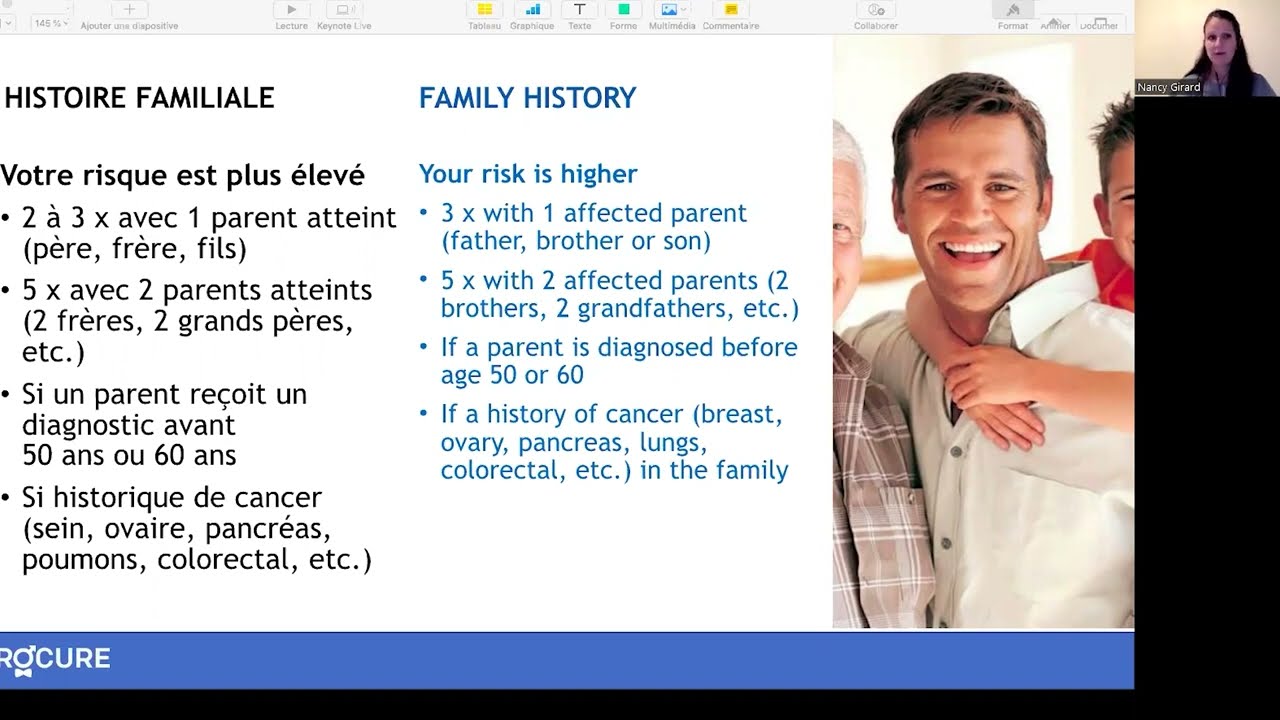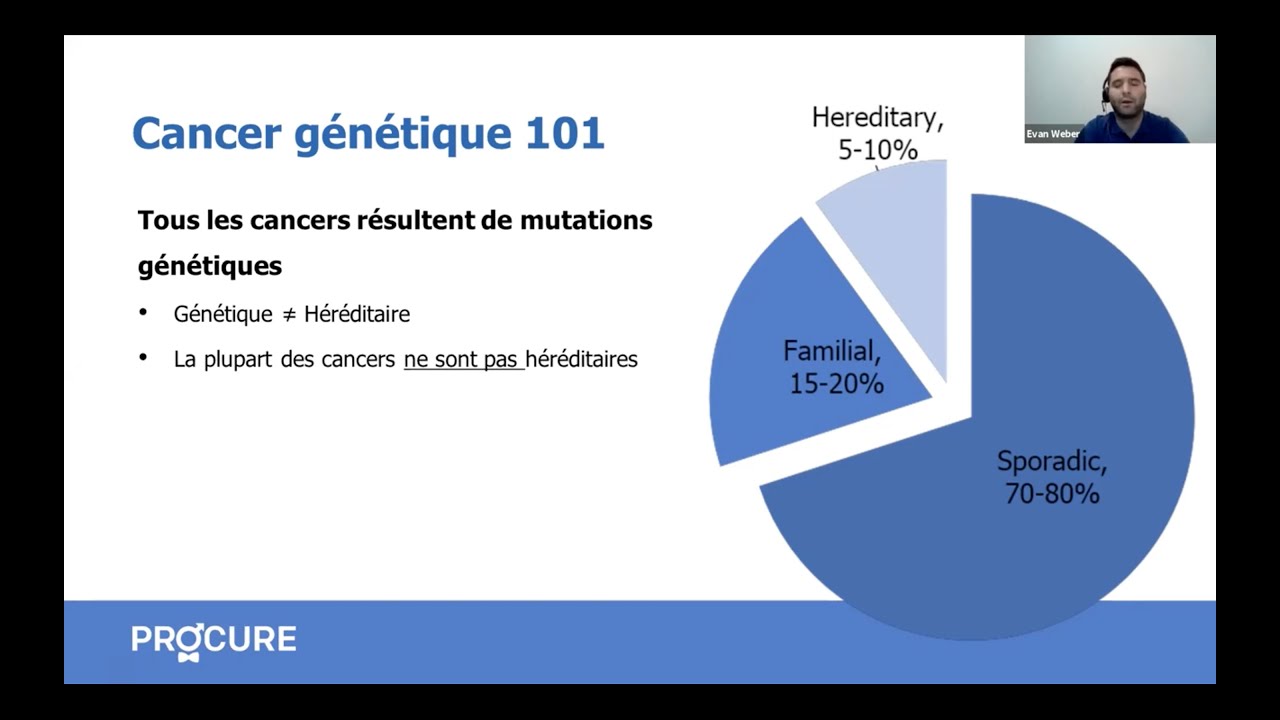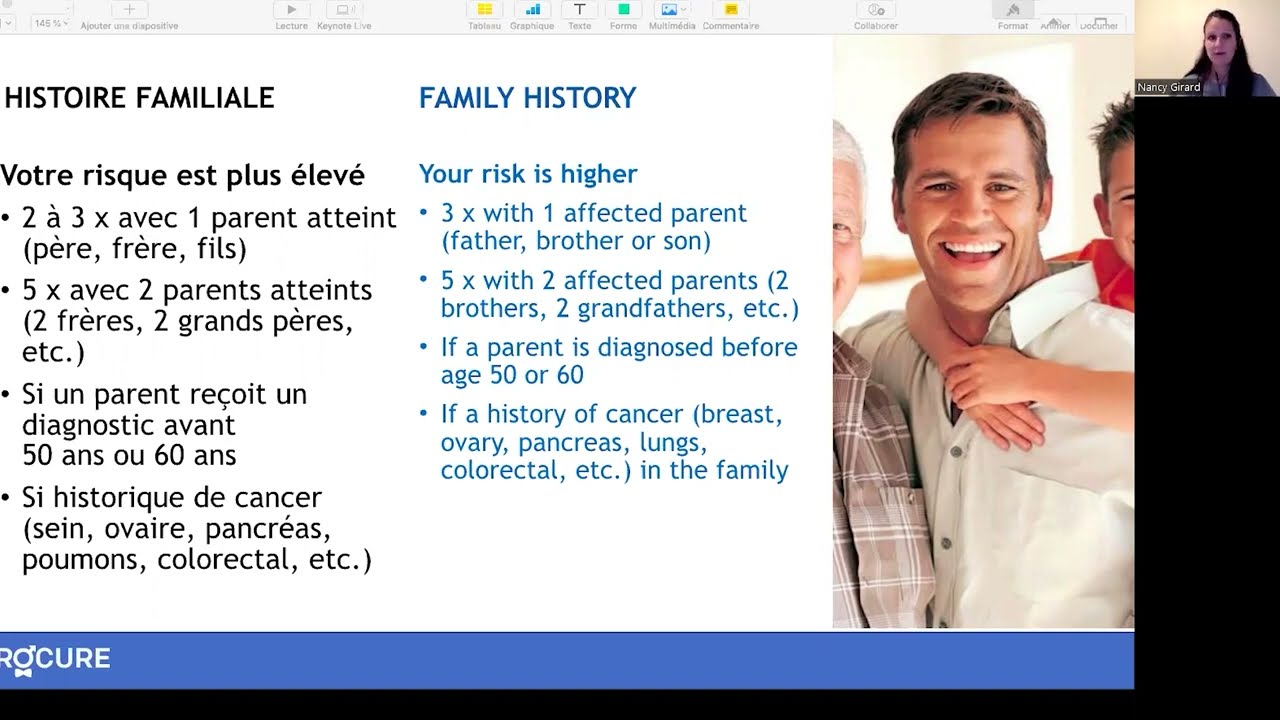Avec votre médecin
- Tout sur le dépistage
- Avec votre médecin
- Déroulement
- Attente et résultats
Avec votre médecin
Discussion avec votre médecin

Déroulement de la rencontre avec votre médecin
Si vous présentez des symptômes, votre médecin voudra savoir:
- Depuis combien de temps ressentez-vous vos symptômes
- Si vos symptômes s’aggravent avec le temps
- À quel point vos symptômes nuisent à votre vie quotidienne
- Quels sont vos antécédents familiaux
- Quels sont vos antécédents médicaux
Votre médecin vérifiera si vos symptômes ne pourraient pas s’expliquer par:
- Un problème de santé autre que le cancer de la prostate
- Un médicament que vous prenez
- Le mode de vie que vous avez adopté
Déterminer la source de vos symptômes
Pour déterminer la source de vos symptômes et aider à orienter le traitement, votre médecin pourrait procéder à:
- Une analyse d’urine. Un antibiotique vous sera alors prescrit si l’analyse détecte la présence d’une infection.
- Un examen physique. Cet examen permet d’évaluer votre état général de santé et de détecter tout signe de maladie, y compris les signes associés au cancer de la prostate. Lors de cet examen, votre médecin vous proposera un toucher rectal.
- L’évaluation d’un journal urinaire. Dans un tel journal, vous noterez pendant quelques jours toutes vos habitudes en matière de consommation de liquide (quantité et type) et de fréquence des urines.
Toucher rectal
Pourquoi? Le toucher rectal permet de vérifier la taille et la texture de la prostate. Puisque la majorité des cancers de la prostate affectent la partie de la prostate qui est la plus près du rectum, certaines anomalies peuvent être détectées par un simple toucher.
Comment? Pour examiner votre prostate, votre médecin vous demandera soit de rester debout en vous penchant vers l’avant soit de vous allonger sur le côté les genoux repliés vers la poitrine. Il insérera un doigt ganté et lubrifié dans votre rectum et, en appuyant sur la paroi du rectum, palpera votre prostate pour en déterminer la taille et y déceler des zones dures ou irrégulières. Cet examen peut être inconfortable pour certains hommes, mais ne dure que 10 à 15 secondes.
Résultats. Si votre médecin juge que la taille de votre prostate est supérieure à la normale pour votre âge, il se peut que vous soyez atteint d’hyperplasie bénigne de la prostate (HBP). Par contre, si votre médecin détecte des masses ou irrégularités à la surface de votre prostate, il peut s’agir d’un cancer. Cet examen n’est toutefois pas infaillible: une prostate cancéreuse peut sembler normale au toucher.
Suite. Si votre médecin décèle une anomalie, il vous proposera un test de l’antigène prostatique spécifique (APS). Selon les résultats, il vous suggérera de consulter un médecin spécialiste, généralement un urologue, qui effectuera d’autres tests, dont, par exemple, une biopsie de la prostate par échographie transrectale.
Tests de l’antigène prostatique spécifique (APS)
Le test de l’APS mesure le taux d’APS total dans le sang. Pour se faire, une prise de sang vous sera prescrite chaque fois que vous devrez passer un test de l’APS.
Selon les résultats, il est possible que vous et votre médecin décidiez de faire le suivi de votre taux d’APS sur une base régulière pour voir s’il change au fil du temps.
Si votre quantité totale d’APS dans le sang est très élevée par rapport à la normale pour votre âge, une biopsie de la prostate par échographie transrectale pourrait aussi vous être proposée.

Il faut compter environ une semaine avant d’obtenir les résultats de votre test de l’APS. Bien que le test de l’APS représente un des meilleurs outils pour le dépistage du cancer de la prostate, des résultats dits « faux positifs » ou « faux négatifs » peuvent survenir.
Faux positif
- Un résultat faux positif au test de l’APS survient si un homme montre un taux d’APS élevé sans avoir le cancer de la prostate. Un tel résultat peut non seulement causer de l’anxiété chez l’homme et son entourage, mais aussi mener à des examens additionnels pouvant occasionner des effets indésirables. Une biopsie de la prostate, par exemple, peut provoquer des infections, de la douleur et des saignements.
- La plupart des hommes qui présentent un taux d’APS élevé n’ont pas le cancer. Environ 25% des hommes devant subir une biopsie de la prostate en raison d’un taux d’APS élevé ont réellement le cancer de la prostate.
Faux négatif
- Un résultat faux négatif au test de l’APS survient si un homme montre un taux d’APS normal malgré la présence d’un cancer de la prostate.
- Un tel résultat peut donner la fausse assurance qu’il n’y a pas de cancer bien que des soins soient requis.
Prochaines étapes
Si votre médecin croit que d’autres tests doivent être effectués pour confirmer ou infirmer que vous avez un trouble de la prostate, il vous dirigera vers un urologue. Celui-ci vous fera sans doute repasser certains des tests que vous avez déjà subis. Il est possible qu’on vous demande de faire un autre test de l’APS dans un futur proche pour vérifier si votre taux d’APS augmente avec le temps. Selon les résultats, vous déciderez ensemble de la future marche à suivre.
Informations complémentaires – Tout sur le dépistage

Le cancer de la prostate est-il héréditaire?
Understanding the hereditary and genetic aspects of this disease can provide valuable information to both individuals affected and their families.

Symptômes, risque et dépistage
Vous avez plus de 50 ans ou des problèmes urinaires? Découvrez pourquoi le dépistage précoce des maladies de la prostate est important.

Génétique et cancer de la prostate
Avez-vous une histoire familiale de cancer? Votre médecin pourrait recommander un dépistage génétique.

De la prostate au dépistage
Découvrez le rôle de votre prostate, les maladies associées, les symptômes à surveiller et les facteurs de risque.

Prédisposition génétique au cancer de la prostate
Bien que rares, certaines mutations génétiques héréditaires peuvent augmenter votre risque de cancer de la prostate.

De la prostate au dépistage
Découvrez le rôle de votre prostate, les maladies associées, les symptômes à surveiller et les facteurs de risque.

Q-R – Génétique ou histoire familiale?
Saviez-vous que les hommes qui ont des cas de cancer dans leur famille y sont plus exposés?

Votre pénis est courbé?
Portez-vous à gauche, à droite, vers le haut ou vers le bas? Votre pénis est courbé et vous, ou votre partenaire, voulez savoir pourquoi?

Puis-je prévenir un cancer de la prostate lié au BRCA?
Comment prévenir un cancer de la prostate lié au BRCA? Puis-je avoir une prostatectomie radicale ou un traitement préventif pour le prévenir?

Qu’est-ce qu’une mutation génétique?
Vous avez une importante histoire de cancer dans votre famille, par exemple du sein, de l’ovaire, du pancréas ou de la prostate? Existe-t-il un lien entre le cancer de la prostate et une mutation génétique?

J’ai une douleur à mon testicule
Bien qu’une douleur à un testicule soit plus fréquente qu’on ne le pense et généralement sans inquiétude, il est important de vous familiariser avec ce symptôme et de consulter un médecin.

Je sens une lourdeur dans mes bobettes
En sortant de la douche, vous prenez le temps de vous mettre nu devant le miroir pour un auto-examen de vos testicules. Et force est de constater que ces derniers sont beaucoup plus gros que d’habitude.

Lien entre le cancer de la prostate et l’obésité
Si vous êtes obèse ou si vous faites de l’embonpoint, il est plus probable que le cancer de la prostate sera diagnostiqué à un stade plus avancé…

Le cancer de la prostate: une maladie de vieux?
Cela dépend de la définition de vieux. Est-ce qu’avoir 50 ans est réellement considéré comme être « vieux »?

Ce que les femmes doivent savoir…
En tant que femme, vous pourriez décider de balayer sous le tapis cette maladie, car vous n’avez pas de prostate. Le hic est que le cancer de la prostate est le plus répandu des cancers chez les hommes.

10 signes qui incitent à consulter un médecin
Il existe de nombreuses raisons pour lesquelles les hommes seront référés vers un spécialiste, et si vous ressentez l’un des symptômes suivants, vous devriez consulter un médecin de famille. Voici 10 signes qui incitent à consulter. Sachez également qu’à moins d’aller en clinique privée, vous ne pouvez pas consulter un spécialiste directement, comme un urologue, […]
Sources et références
Dernière révision médicale et éditoriale: janvier 2024. Voir notre comité de valiation de nos pages Web et nos collaborateurs en cliquant ici.



